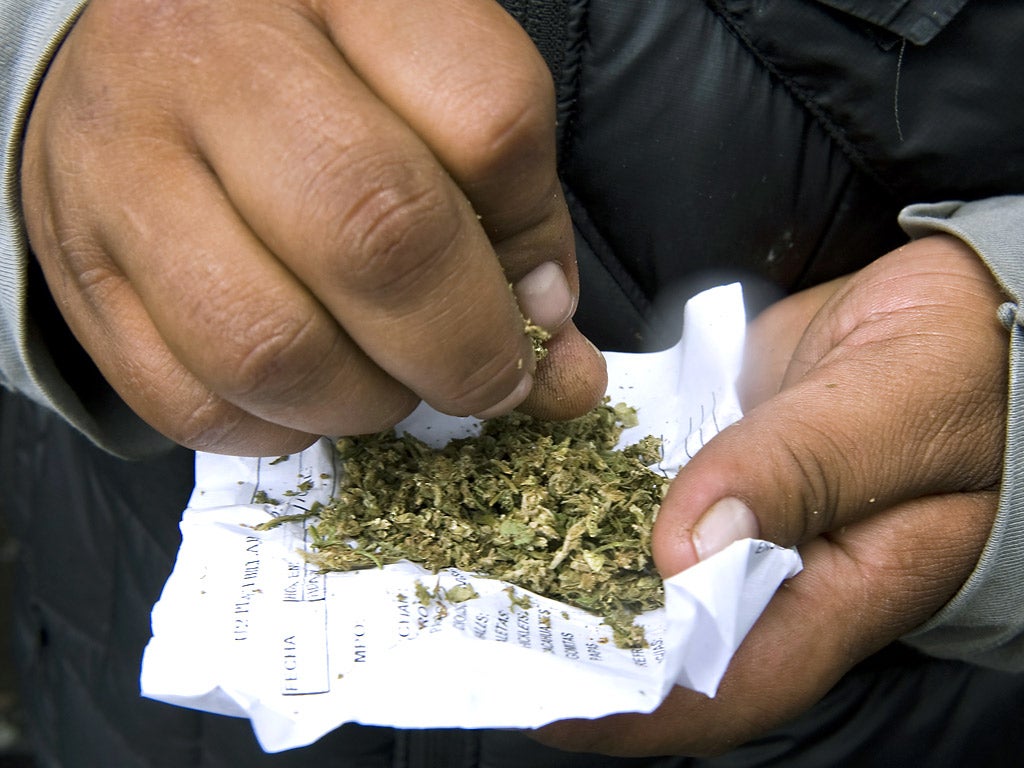Signs of a rethink on America's War on Drugs
Maryland looks likely to follow Washington and decriminalise marijuana

One of the benefits of America’s federal system is to allow for experimentation; ideas that are successful in one state can then be replicated in others. Legalising marijuana could be one of them.
The idea is gaining momentum. A bill to decrimimalise possession of marijuana has just passed a second reading in the Maryland Senate. It would move possession of 10 grams of marijuana from being a criminal to a civil offence, punishable by a maximum of a $100 fine. Last November, Colorado and Washington voted for marijuana legalisation in referenda.
The consensus on the War on Drugs is finally under threat. Since the 1961 UN Convention on Narcotic Drugs, a prohibitory and criminalising attitude to drugs has been pursued across the world, nowhere more vehemently than the United States. It has failed.
In 1971, President Nixon declared a “war on drugs”. America has spent over $1 trillion, and arrested more than 45 million people, since. Drug use remains unchanged. The US penal population has risen from 350,000 to over two million in this time; a higher proportion of black people are imprisoned in America today than in South Africa under apartheid. America has comfortably the highest proportion of its population behind bars of any country in the world.
Many Americans, including Barack Obama, have lamented the number of fatherless black families: the War on Drugs is by far the greatest reason for this.
Last year’s presidential election showed the depressing groupthink on drugs policy at its worst. While Barack Obama and Mitt Romney supported the status quo, the Green Party, Justice Party, Libertarian Party and Conservative Party were all united in denouncing the lunacy of the War on Drugs.
In the last 15 years, global consumption of marijuana and cocaine has risen 50% - so much for the UN’s 1998 event “A drug-free world: we can do it”. Portugal shows there could be a different way: 12 years since the decriminalisation of possession of small amount of drugs, the number of drug-induced deaths in the country has fallen, with a related decreasing trend in HIV and Aids.
Money spent on a never-ending game of law enforcement is much better invested combatting addiction; it would be not only better for American society but also the federal government debt. And it would be much better for Latin America too - Mexican criminal gangs earn over $4 billion a year just from exporting marijuana and cocaine to America.
But it remains politically toxic to challenge the consensus. Hundreds of thousands of people – from police officers to jail wardens, lawyers and vast layers of bureaucrats - owe their livelihoods to the War. And the threat of being labeled soft on crime has acted as a deterrent to sanity: it’s why politicians calling to end the War, in America and elsewhere, tend to be retired. Perhaps we should speak of a ‘drugs complex’ just as we speak of America’s military industrial one.
If “doing the same thing over and over again and expecting different results” is madness, as Einstein said, it’s time to re-think the War on Drugs. Thankfully, there are signs America is doing just that.
Join our commenting forum
Join thought-provoking conversations, follow other Independent readers and see their replies
Comments
Bookmark popover
Removed from bookmarks